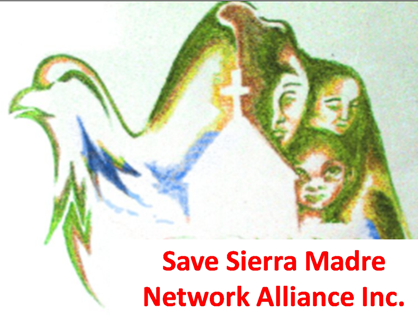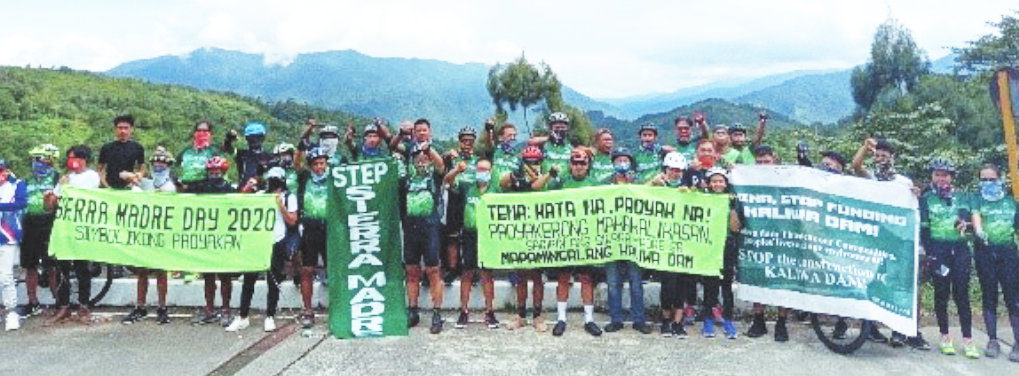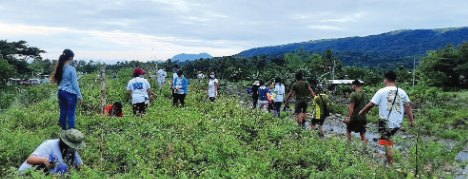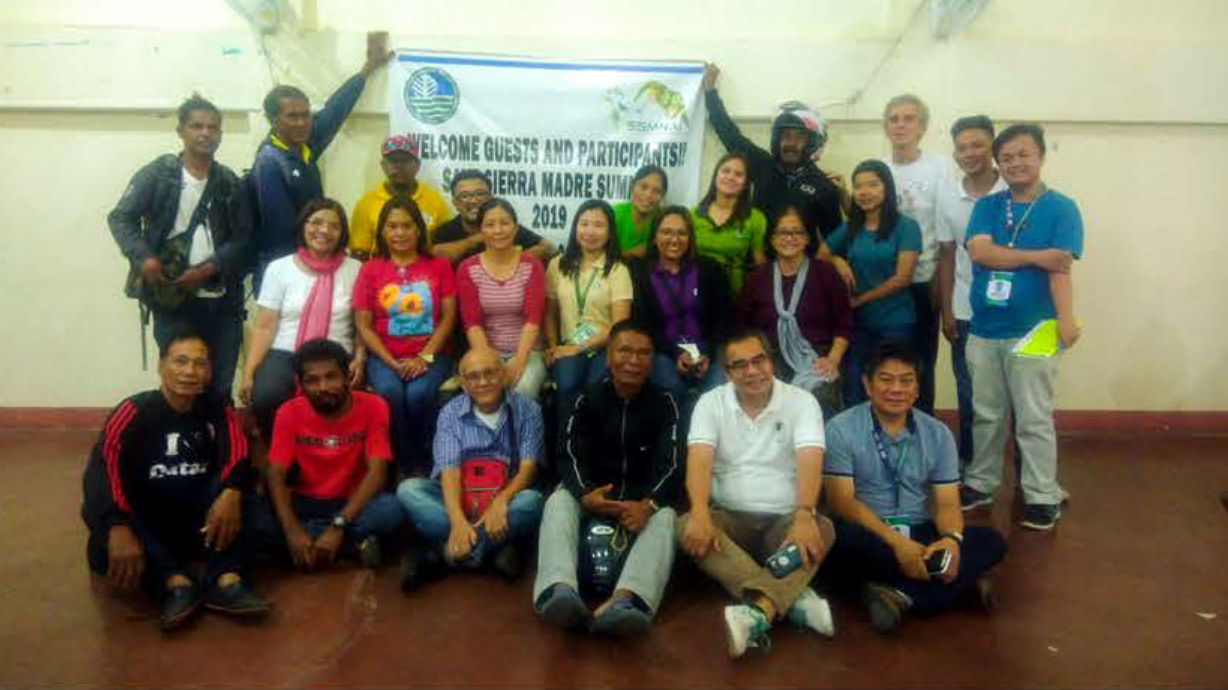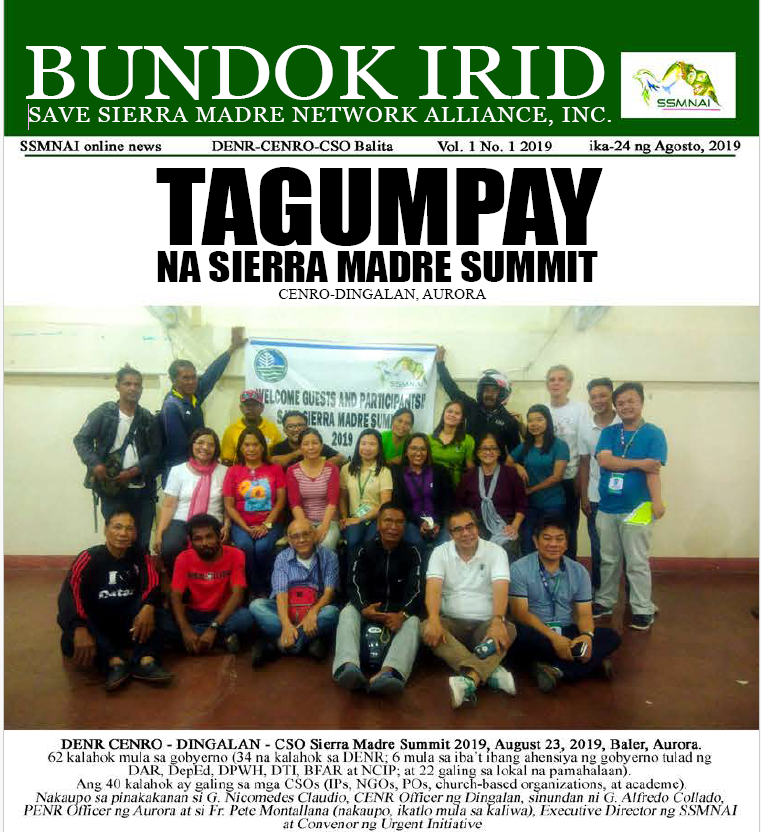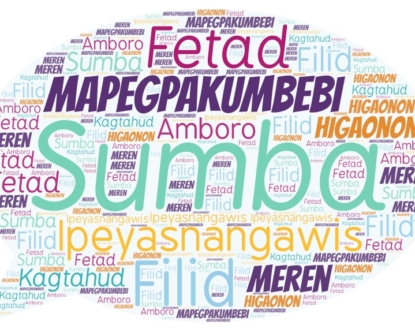Project
IP voices in CENRO Summit
-
Amount Funded
25,000 EUROProject Duration
01 Jun 2019 - 01 Mar 2020 -
-
Lead organisation
-
Save Sierra Madre Network Alliance, Inc (SSMNAI) envisions a community of stewards and co-creators of a loving Creator to all of creation, in particular to Sierra Madre. SSMNAI commits to the present and future generations that shall:
• Co -exist harmoniously with all creatures, living things and elements of nature;
• Care for and protect our natural environment particularly within Sierra Madre;
• Awaken the consciousness among local communities and all Sierra Madre stakeholders of our being stewards and co-Creators of a Loving Creator; and
• Strengthen the commitment of local communities and all Sierra Madre stakeholders in maintaining the balance of nature.
-
Organisation
Save Sierra Madre Network Alliance, Inc (SSMNAI) envisions a community of stewards and co-creators of a loving Creator to all of creation, in particular to Sierra Madre. SSMNAI commits to the present and future generations that shall:
• Co -exist harmoniously with all creatures, living things and elements of nature;
• Care for and protect our natural environment particularly within Sierra Madre;
• Awaken the consciousness among local communities and all Sierra Madre stakeholders of our being stewards and co-Creators of a Loving Creator; and
• Strengthen the commitment of local communities and all Sierra Madre stakeholders in maintaining the balance of nature.
-
Project
The need to have the Community Environment and Natural Resources Office (CENRO) Civil Society Organisations (CSO) summit arose during the Department of Environment and Natural Resources(DENR) Region 3 CSO summit when DENR and CSOs gathered together to address the economic and environmental concerns of the Sierra Madre Mountain Range and involvement of local communities.
The project Indigenous Peoples (IPs) voices in CENRO Summit builds the capacity of the IPs to have a strong voice during multi-stakeholder partnerships and alliance building with government and CSOs. This project is being implemented with a number of partners namely; Haribon Foundation, Prelature of Infanta-Community Organisation of the Philipppines, Inc., Tribal Center for Development (TCD) and BATARIS.
For the Indigenous Peoples and CSOs in general, the summit is an opportunity to mainstream into the government policy and programming the IP communities’ development aspirations and their indigenous knowledge, systems and practices. The summit highlights the urgency of IP groups and their CSO partners to rise with one voice in communicating their shared vision of how the Sierra Madre can be managed and its ecosystems services sustained.
-
-
The need to have the Community Environment and Natural Resources Office (CENRO) Civil Society Organisations (CSO) summit arose during the Department of Environment and Natural Resources(DENR) Region 3 CSO summit when DENR and CSOs gathered together to address the economic and environmental concerns of the Sierra Madre Mountain Range and involvement of local communities.
The project Indigenous Peoples (IPs) voices in CENRO Summit builds the capacity of the IPs to have a strong voice during multi-stakeholder partnerships and alliance building with government and CSOs. This project is being implemented with a number of partners namely; Haribon Foundation, Prelature of Infanta-Community Organisation of the Philipppines, Inc., Tribal Center for Development (TCD) and BATARIS.
For the Indigenous Peoples and CSOs in general, the summit is an opportunity to mainstream into the government policy and programming the IP communities’ development aspirations and their indigenous knowledge, systems and practices. The summit highlights the urgency of IP groups and their CSO partners to rise with one voice in communicating their shared vision of how the Sierra Madre can be managed and its ecosystems services sustained.
-
According to Dumagat Leader Conchita Calzado, who is also Board member of SSMNAI, and based in Infanta, Quezon, the most significant lesson learned by the Dumagat communities throughout the implementation of the project is the importance of public participation, especially Indigenous People’s (IP) participation on matters involving the rights of Indigenous Peoples as articulated in the Indigenous People’s Rights Act. This learning was echoed by the IP leaders in Dingalan, Casiguran, Nueva Ecija, Rizal and Cagayan. The indigenous leaders expressed a feeling of exhaustion, hopelessness, and impatience before the project was implemented. During implementation, their fears were set aside, they started to believe again that change will come, and the project provided the platform for dialogue and conversation.– From SSMNAI final report
The Save Sierra Madre Network Alliance, Inc. (SSMNAI) expressed that their biggest achievement of the project is the active participation of the Dumagat indigenous peoples from the Municipalities of Dingalan and Casiguran, province of Aurora, during the Department of Environment and Natural Resources Community Environment and Natural Resources (DENR) Office (CENRO) – Civil Society Organisation (CSO) Summits. In these summits, the output was the signing of the Memorandum of Commitment (MOC) between the Dumagat communities and the various key government agencies. The signatories committed to uphold the rights of the Indigenous Peoples and to work together for the protection and conservation of the forest.
Through the project, the Dumagat communities were able to lobby with government their issues and aspirations and the government now listens to the voice of the indigenous peoples.

For SSMNAI, an important learning is that once you get government to commit to something, continue on the follow-through activities/meetings until you reach your objective. Understand that they have a lot of things -to-do when they go back to their offices and a little push and pressure from the civil society would lead to a speedy resolution of the issues raised. The role of the church is also key in safeguarding the security of the Indigenous Peoples. The Indigenous People’s Apostolate and/or Social Action Centers served as focal point when there are complaints of harassments committed by the State.
Despite the challenges and limitations, the project was able to respond to the following issues raised by the Indigenous Peoples:
- Illegal Logging and Forest Protection
- Communal Forest
- Violation of Free and Prior Informed Consent Regulations
- Sustainable livelihood
- Ancestral Land and Ancestral Water
- Municipal Water
- The IPs also lobbied to establish the Marine Protected Areas to protect the marine ecosystem and ensure sustainability of their fish catch.

The IPs are more aware of their rights and are encouraged to continue their struggle. They are now more open to work with CSOs and government. There is renewed hope with the broader support coming from CSOS.
Changes happening within our organization
The organization now sees gender equality lens and gender analysis as very helpful and powerful tools in the identification of problems/issues as well as the project design, implementation and the M&E part of the whole project development cycle. By doing so, the goal of gender mainstreaming is achieved, when in the end of the project, we can say that “No one is left behind” in the development process. Whereas before, IPs are seen as a marginalised sector where there are women and youth who needs to be assisted. Now, the organization sees the presence of the elderly and the persons with disabilities within that sector that may need to be involved and would need special attention.

Changes happening with the indigenous peoples
One of the IP leaders in Nueva Vizcaya shared that there was a lull moment that people are already burnt out in dealing with the challenges of their struggles for their IP rights and the right to manage the resources within their ancestral domain. Providing the venue for stakeholders to have a conversation with and a reflection session on their strategies, what works and what will not work in dealing with government, the IPs expressed that they felt energized and renewed vigilance to continue their aspirations.
Changes happening in the local communities and the government
The problem with illegal cutting of trees is now jointly monitored by the community and government. Before, when the community reports cases of illegal logging, their complaint seem to fall on deaf ear. According to Divina Padua, head of Task Force Sierra Madre-Dingalan, after the Summit, the local government and DENR are now more strict in implementing the law.
Government now takes action on reports and recommendations made by CSOs. As examples: immediate action on reports of illegal logging in Dingalan, formation of composite team to investigate the construction of the access road in Gen. Nakar, Quezon, and the joint celebration of Save Sierra Madre Day.

There is now a written commitment from government in the project sites to prioritise the livelihood of indigenous peoples and include them in the government programme and projects.
- Illegal Logging and Forest Protection
- News

